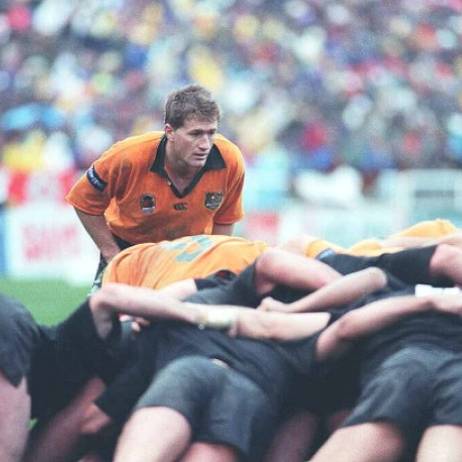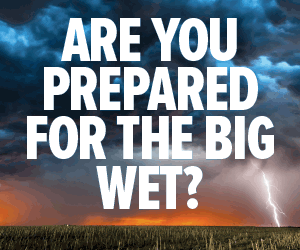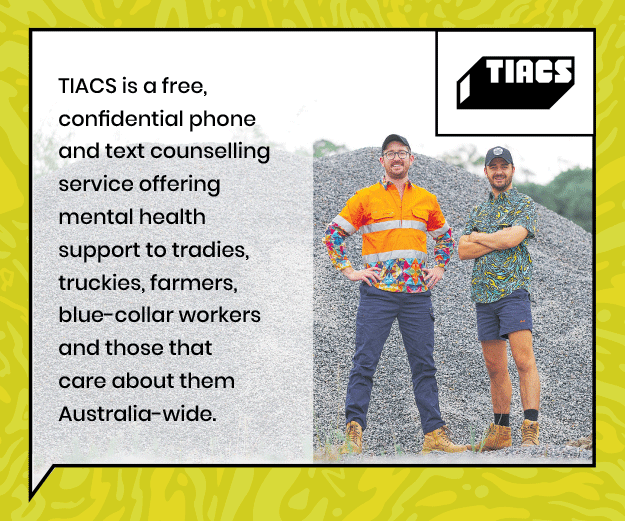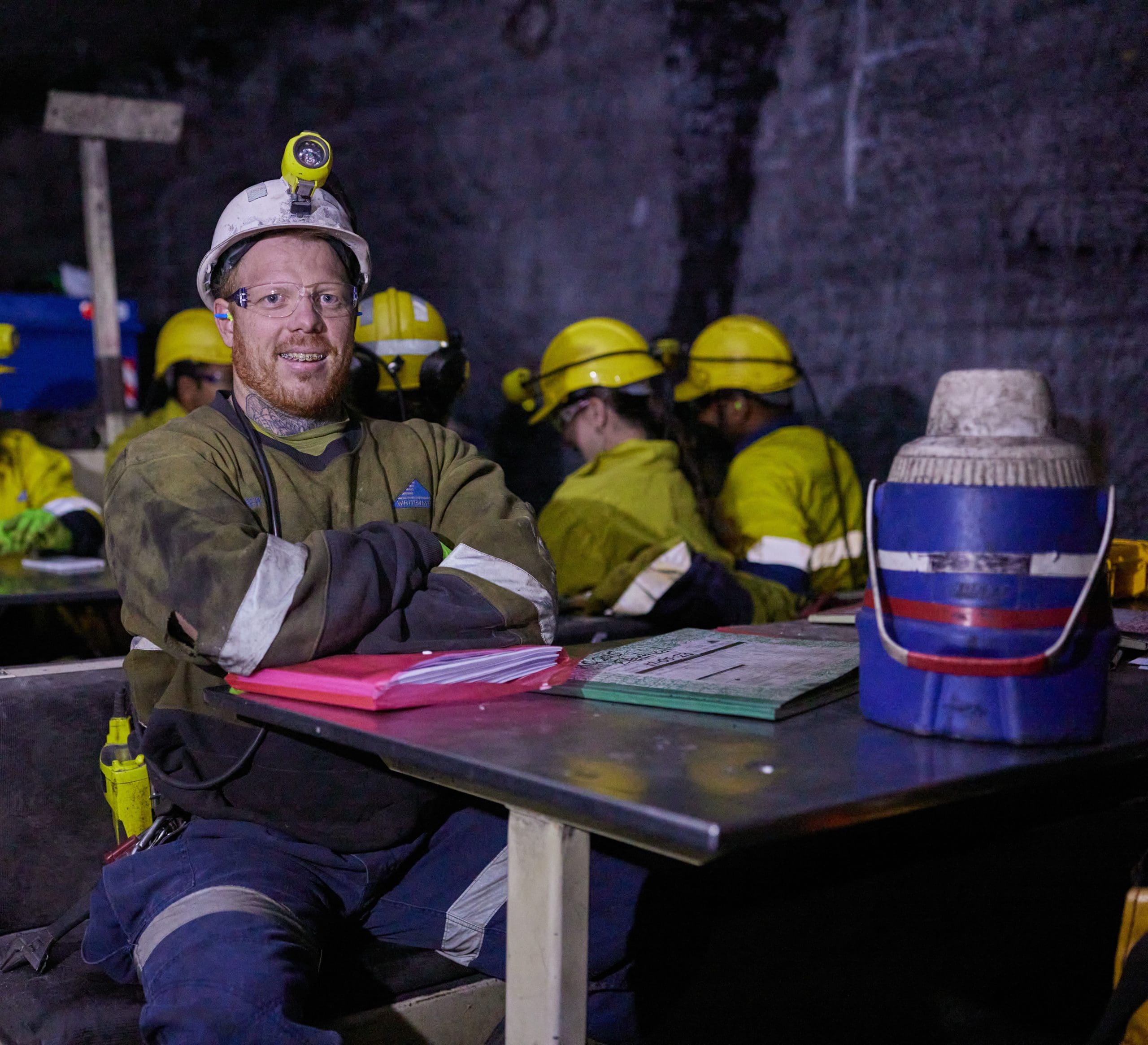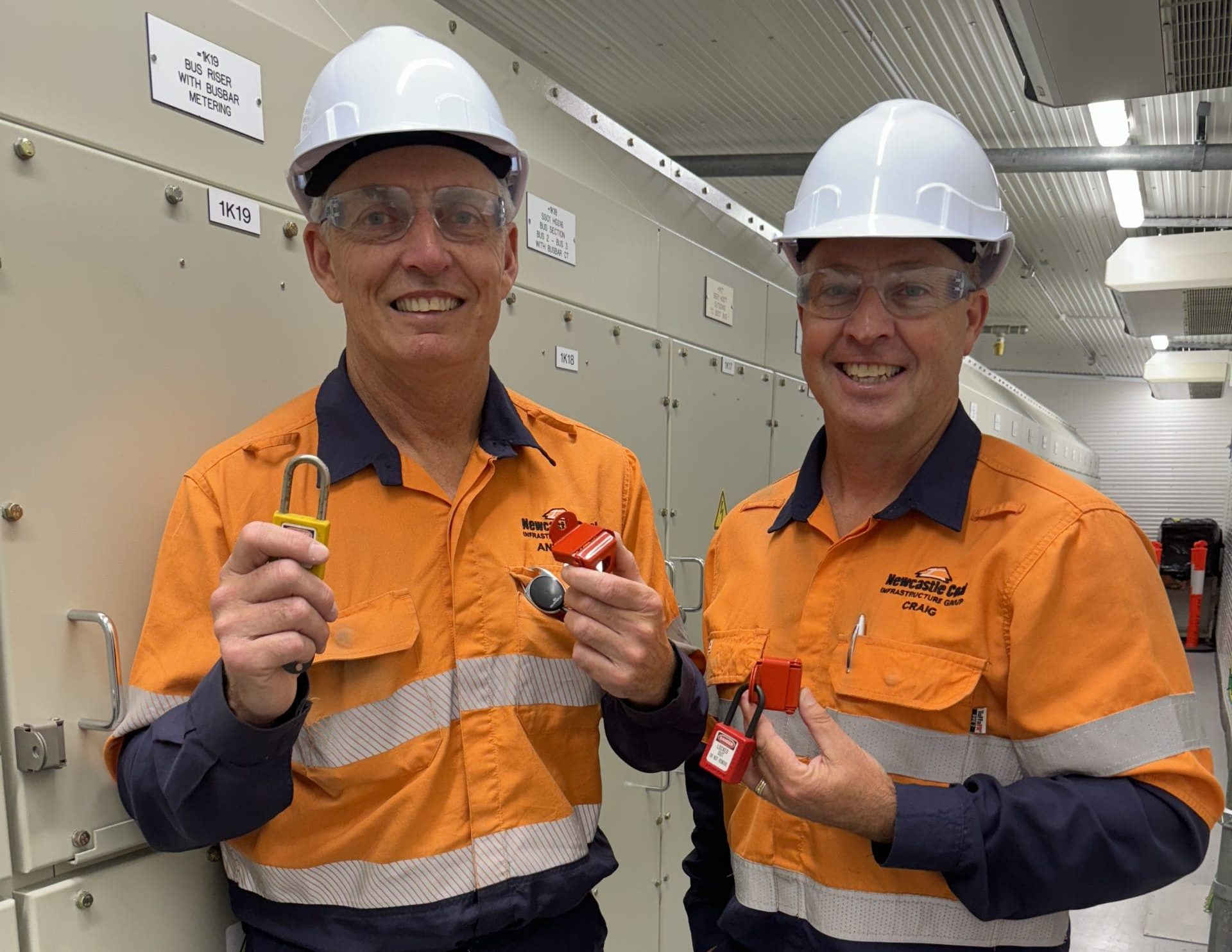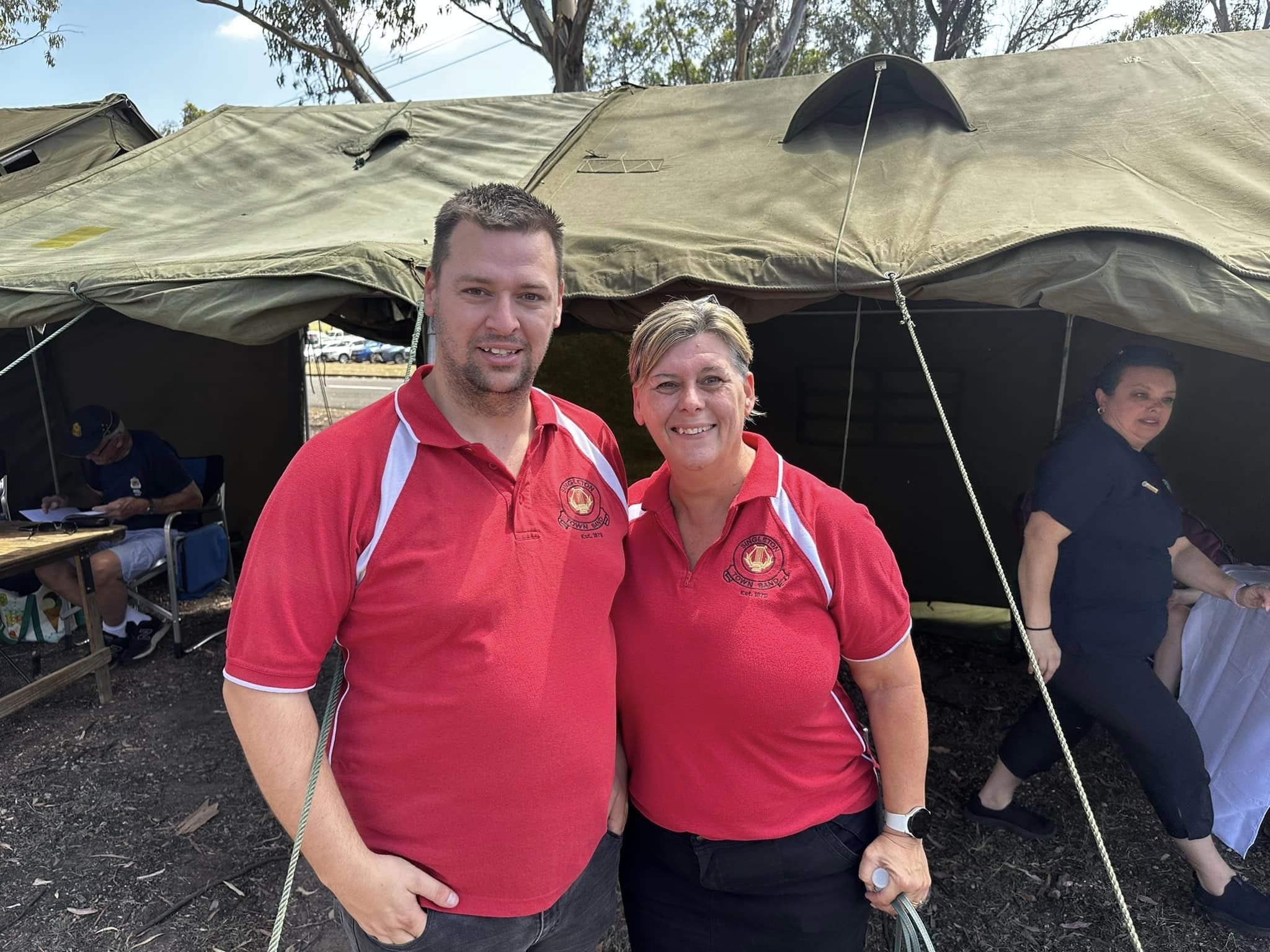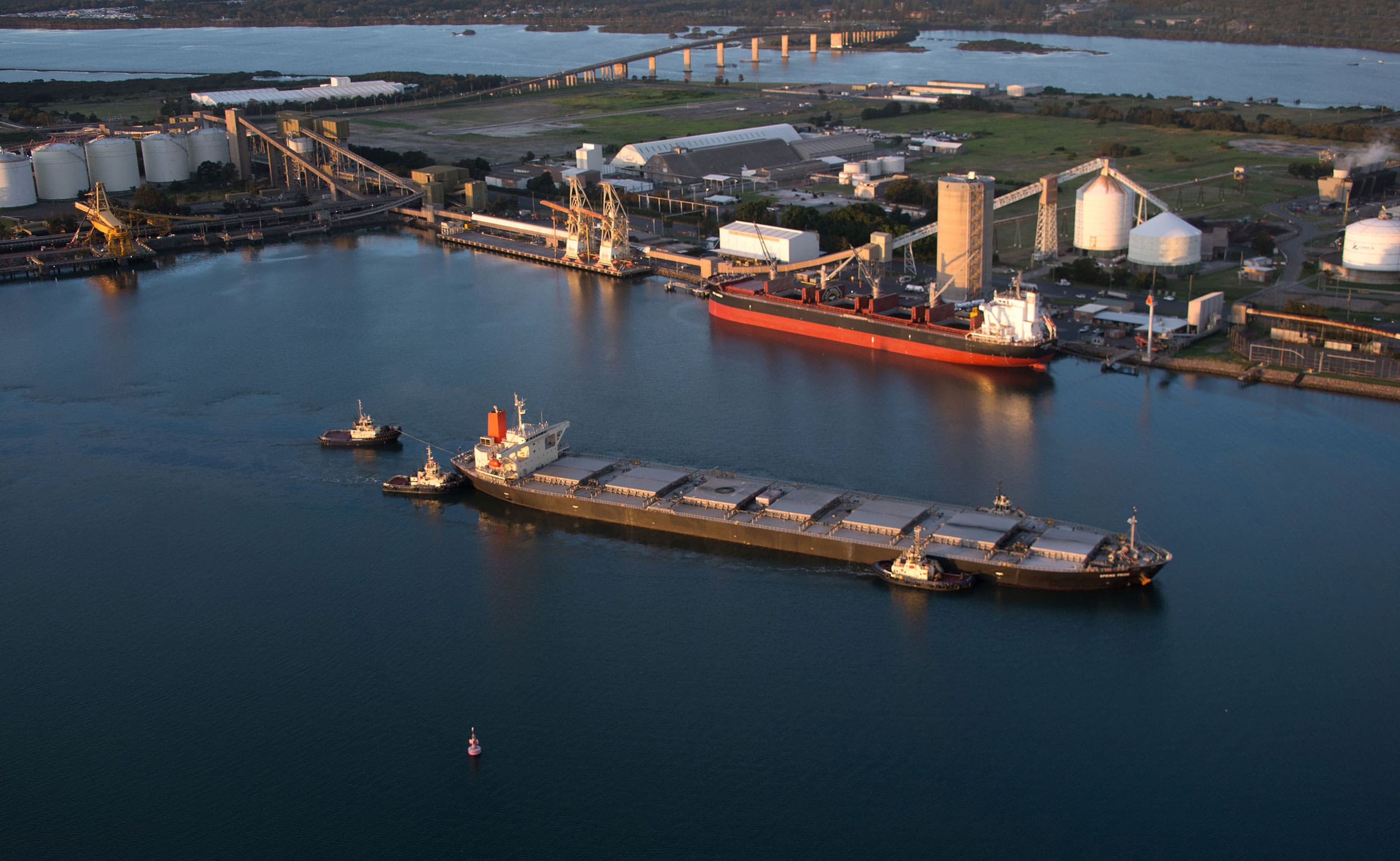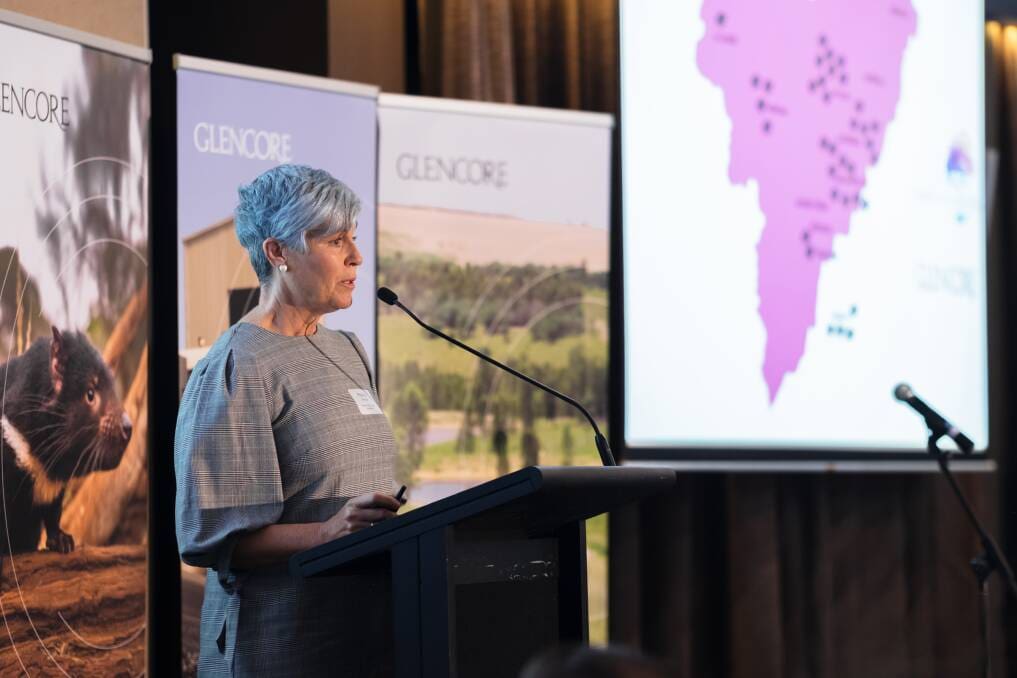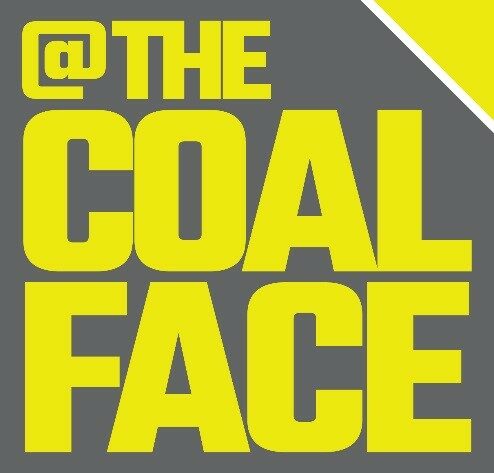Steve Merrick’s time with the Wallabies was fleeting compared to the many years he has spent in the mining industry, but it’s an experience he’ll never forget.
Steve started playing rugby league when he was 5 years old in Singleton. He played right through until the age of 18 and then after 13 years of playing the same sport he decided to switch codes.
“I didn’t even know there was Rugby Union in Singleton, but in 1986 I watched my brother play in a Tooheys Cup final against Orange and I thought, ‘wow this is a bloody good game’ and I was converted.”
Steve joined the Singleton Bulls second grade team and the rest is history.
“I played league for a long time and I didn’t really see outside of the Hunter Valley. But when I started playing rugby, I played three games and I was already on a plane to New Zealand.
“The opportunities were so great because Australia won the World Cup in 1991, and rugby boomed.
“I broke into NSW Country quite early and then I played country seconds seniors and broke into the Cockatoos.
“Back then Country got to play every touring international team, so they’d come out to play the test on the weekend but through the week they would play a mid-week warm up game with us, so I got to play Ireland a couple of times, Scotland, Wales and South Africa.”
Steve shone on the field, winning Newcastle and Hunter Rugby Union’s highest honour, the Anderson Medal in 1990, 1991 and 1992.
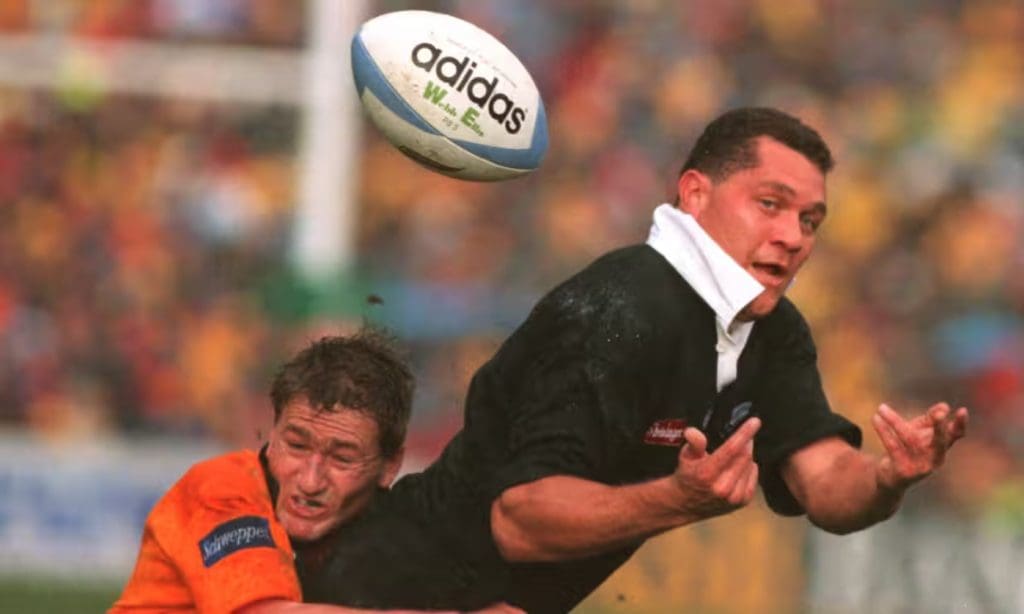
It was in 1995 that Steve got a call he’ll never forget.
That year the World Cup was in South Africa. It was a pretty poor tournament for Australia. The team was already on a flight home while supporters were en route to watch the final hoping their home team would be in it.
“I got a call from coach Bob Dwyer while I was driving a truck at Howick mine. I hung up on him the first time because I thought it was one of my mates geeing me up, and then he rang again. He wanted to know if I would be available to play for New South Wales against Otago.
“I said ‘you’ll have to talk to my boss who is in South Africa to watch you guys!’
“My boss told me to go for it so I went down to Sydney and trained with the NSW Waratahs and we played over in Dunedin. We won that game; I was on the bench for the first half and then went on.
“We played another game in Sydney where I got Man of the Match and scored a try and then played a game in Queensland and I scored another try.”
Steve flew back to Sydney and as he was getting off the plane he spotted his wife with a big smile on her face.
“They were announcing the Wallabies team at the airport, and I said to my wife ‘what do you know that I don’t know?’ She knew I had made the team and when they announced it I went to water.
“I didn’t want to do it; I was shit scared. But my wife told me to just go because I may not even get on the field.”
But he did. Steve was picked to run on in the first test against New Zealand where the side lost 16-28. A week later at the second test in Sydney he retained his spot running on in their loss against the All Blacks 23-34.
When the dust settled on that test series, the Australian Rugby Union offered Steve a contract with the condition he live in Sydney and leave country rugby.
“I decided that wasn’t for me so I went back home to the mines.
“My dad and my brother were in the mines and I had been trying to get a permanent job in the industry for years. It’s funny after I played for the Wallabies, I got a permanent job in the pit pretty quick!”
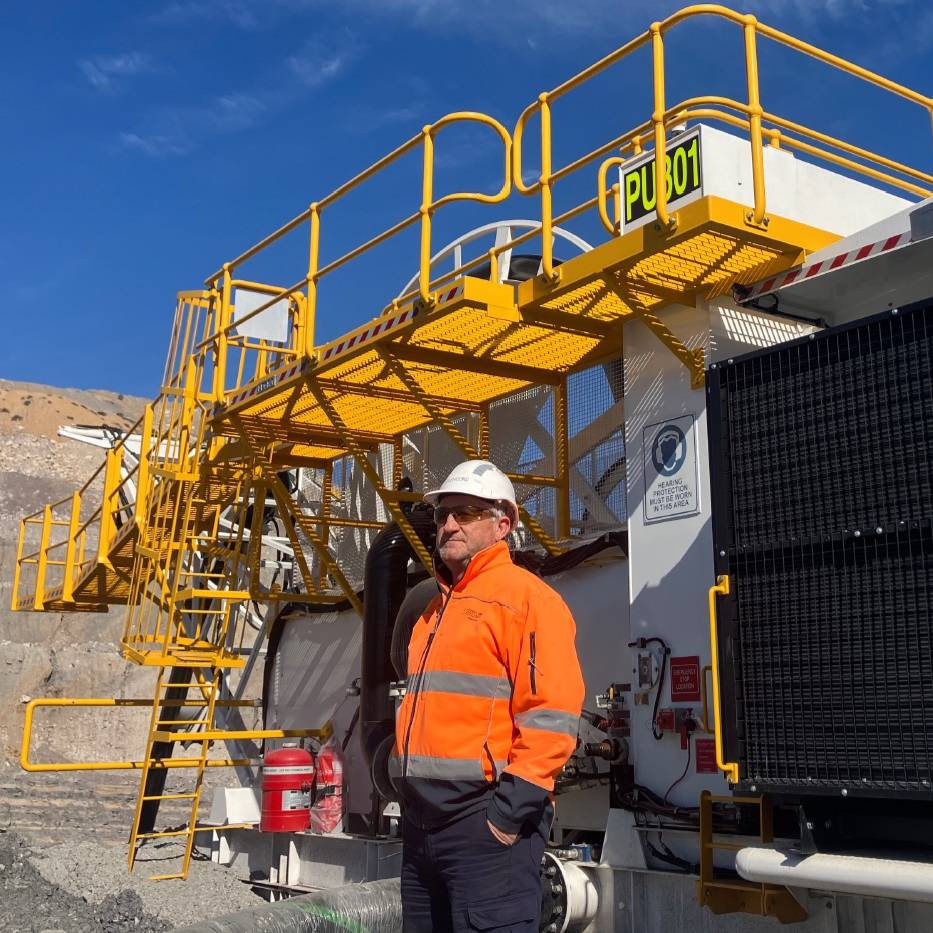
Steve worked on a truck, a grader, dozer and excavator, then became a head trainer for all of those.
“I eventually got tired of swinging diggers so my last two years at Camberwell I got on the pump crew dewatering pumps, I loved that. It was good to get out and then I heard Glendell was opening up so I put my hand up.
“I took on a training role and then they asked me if I wanted to do my OCE course. I had been offered before but I just didn’t think I could do it.
“My brother was an OCE so I knew how hard it was. I agreed and signed up for a life coach to get my head right. I did that and got through it.
“I was there for 13 years and then got a phone call from United Wambo. They asked me to come and work for them, but I said I was happy where I was and forgot about it. But they called me the next day and asked again so I went over, got a feel for the place and I liked it.
“It’s great, it’s something different every day. Now I’m a Pit Services Superintendent.”
Mining continues to run in the family. Steve’s daughter Michaela has been working in the mines for a few years taking on a shot firer role at United Wambo, but now works for Programmed at Mt Arthur mine in Muswellbrook. Steve’s youngest son is in his fourth-year electrical apprenticeship at Bulga.
“Mining is great, the jobs we have really do set us up for life.”
Looking back on his time with the Wallabies Steve said he doesn’t have any regrets about choosing not to pursue a career with the team.
“People ask me if I have any regrets. I don’t have any regrets on the decisions I made at the time. The only thing I do regret, I was only training at that professional level for five weeks, if I trained at that level for five years how good of a footballer could I have been?
“But I’m glad I did it and I’m glad it’s over,” laughed Steve.

